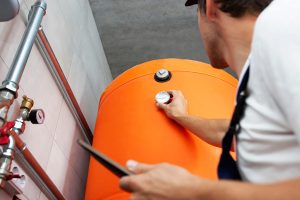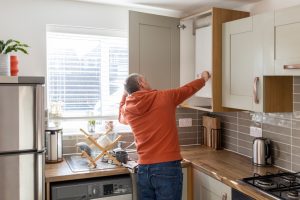What is Living Off-Grid?
With the cost of living in the UK rising rapidly, switching to an off-grid lifestyle could be the perfect way to save money, whilst reaping a whole host of other benefits too.
Living off-grid is removing yourself from the National Grid which is the supplier that connects millions of homes across the UK to energy suppliers and allows the transmission of electricity and gas for your use. With this way of life, you remove yourself from the stresses and tribulations of your tech-heavy, consumerist lifestyle that has become the societal ‘norm’ and go back to basics.
Can I Live Off the Grid in the UK?
Living off the electrical grid is completely legal in the UK and is becoming an increasingly popular way of life. Some local authorities have laws and regulations around the use of land, therefore it is always best to run thorough checks before moving to any plot of land.
Why Should I Live Off Grid?
Once you get going, living off-grid requires little, to no money. Whilst it may take a bit of time to get to this point, in the long run, this way of life can be a serious money-saving technique.
Here are the top five ways living off-grid can save you money during the current cost-of-living-crisis:
1 – Growing Your Produce
Growing your produce is the easiest way to dramatically lower costs and omit unnecessary expenses. After the initial investment for growing equipment and seeds, the cost per pound of your weekly food ‘shop’ will drop significantly.
By only picking the produce you need for the day, you save copious amounts of plastic wrapping and food from being wasted. Any food waste you do have can be turned into compost ready to help your next lot of crops flourish.
In self-sourcing food you are with the produce from seed to harvest meaning – unlike supermarket-bought food – there are no hidden pesticides or chemicals. Through growing produce and composting, you will eventually give back to the earth more than you take from it, making this not only a great way to save money, but also to lower your carbon footprint – a much more rewarding experience than your weekly shop.
2 – Creating Your Own Energy
Being constantly connected to energy can be costly, though sometimes necessary. As living off-grid removes you from the National energy source, it may be helpful to learn how to produce a renewable energy source, or to decide what energy changes you can make to cater to your new lifestyle.
If you don’t fancy cutting yourself off from the world, discover how many solar panels it takes to power a television or charge a phone and you’re good to go! Once you’ve paid the initial one-off cost for the solar panels, the subsequent energy itself is entirely free and extremely eco-friendly.
Kerosene is also an economically great way to provide energy, particularly when heating your home. With an efficiency rating of 90% and a storage life of two to five years, kerosene is the perfect cost-effective choice when living off-grid.
3 – Making Your Own Entertainment.
The average UK household spends around £227 a month on recreation and entertainment. Many locations for an off-grid living are in the middle of nowhere, eliminating this monthly cost as an option. Living off-grid causes you to source your own entertainment and with so much natural open space to explore, you’re not short of options.
From building projects for your new home and long hikes to collecting natural resources and bird watching, living off-grid may just help you to discover a new free hobby.
For some, another large chunk of their monthly budget is spent on a gym membership. Make nature your gym with outdoor yoga, trail running, and biking. Enjoy the lack of noise and air pollution and get back to basics.
4- Discover Alternative Modes of Transport.
Another large expense for some is car maintenance and insurance. In remote areas, sometimes the easiest way to get about is actually by foot or bike. While omitting your need to pay out for car insurance each year, ditching your car will lower your carbon footprint and keep you active, stabilising your weight and improving your overall quality of life.
Electric bikes are also a great option if you still want the option of getting from A-B. You may require insurance, however, with no need for petrol – simply use your self-sourced solar energy to recharge your bike for free.
5 – Decreasing Societal Pressures- Cutting Unnecessary Expenses
With over 59% of the entire world’s population on social media, it can be easy to constantly compare yourself to the world around you. Living off-grid would give you the much-needed distance from the constant pressures and expectations of society.
Whilst you don’t need to cut yourself off from the world entirely (though you most definitely could), give yourself the full off-grid experience and take a social media detox.
Take a step back and reevaluate the things you value as most important to you. Yes, ‘authentic off-grid living’ would look fantastic on your Instagram grid, but removing yourself from social media for a while allows you to spend your time wisely and not be compelled to keep up with the latest trends. In doing this, you save yourself from impulsive, unnecessary online purchases.
Everyone’s experience is different, so take away the need to compare yourself to others by removing social media from your life – even just for a while.
Where Do I Start With Living Off the Grid?
Whilst there are many benefits to living off the grid, it can be an overwhelming experience, with very few able to make the big shift in its entirety. Our advice to you is to start small. It doesn’t have to be ‘all or nothing’ – even the smallest of changes can help you reap the benefits of living off-grid, without the need to make huge life sacrifices.
Here are some tips to help you kick-start your journey to living off-grid:
- Purchase a caravan and try living off-grid for the weekends only.
- Install solar panels in your home to lower your energy bills.
- Grow vegetables/herbs.
Going back to your roots can be a deeply satisfying experience. Even the most mundane of tasks can feel rewarding knowing you have taken a step out of your comfort zone. Each day of your new lifestyle will call for you to challenge yourself and enhance your survival skills whilst you get to grips with becoming completely self-sufficient.
How Can Heatingoil.co.uk Help You To Live Off the Grid?
Kerosene is the perfect low-cost energy solution that many people turn to when living off-grid. With its long shelf-life, kerosene is a reliable fuel source that (when kept properly) can be stored in bulk for up to five years in advance, particularly helpful in the cold winter months.
Whilst your number of rooms and family members causes your energy usage to differ, with an energy efficiency rating of 90%, Kerosene is a great way to lower your oil-fired heating bills.





